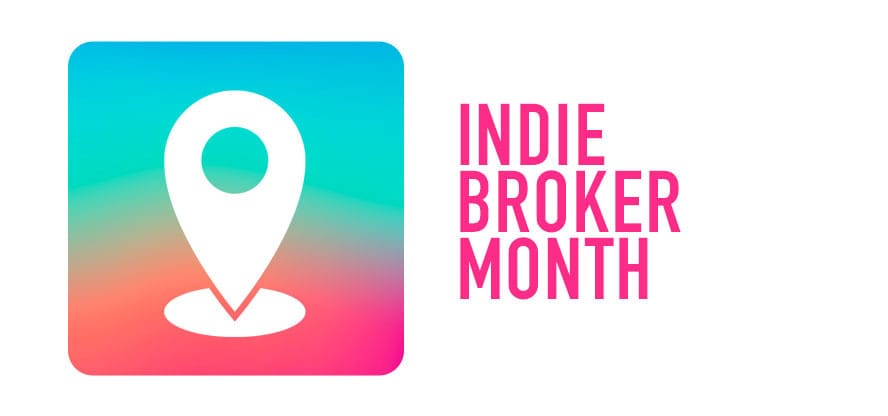 It’s never been a more interesting or exacting time to be an indie broker. In November, Inman celebrates the indie by narrowing in on what growth tactics are working best and what tech is emerging that offers the best competitive advantage.
It’s never been a more interesting or exacting time to be an indie broker. In November, Inman celebrates the indie by narrowing in on what growth tactics are working best and what tech is emerging that offers the best competitive advantage.
When COVID-19 first hit, I was in the middle of leaving a large national brokerage and reopening my small indie brokerage. Coronavirus made the process more complicated, but it also gave me perspective on different brokerage models.
I first started my indie real estate brokerage in late 2015. In November 2019, I decided to shut it down and merge with a large national company to simplify things. I had run my boutique brokerage for almost four years, and I wanted to try a different model. So, in January 2020, I merged with a large national brokerage, and I started my new team in Colorado Springs, Colorado.
After a few months, I knew that I needed to go back to my indie company. There were things about the boutique brokerage lifestyle that I would never find at a national brand. It’s hard to beat the indie life, so I switched back.
My transition made me aware of a few key differences between the two brokerage models. Here are the three main benefits of indie brokerages that I discovered on my journey.
1. Hyperlocal branding
Whenever I go on vacation, I enjoy eating at the local restaurants in the towns I’m visiting. Rarely will I eat at a chain restaurant. Local restaurants have a unique vibe that reflects the culture of the area. Consumers feel the same way about local brokerages.
When I visit Florida, I love to look at homes online in the cities where I stay. I tend to notice the most dominant indie brokerages before noticing the national brands, which are the same as the ones I see in every other city.
Indie brands seem to encompass the lifestyle of the cities they represent in their marketing and branding, which gives them more clout with outsiders. In the same way that a local Italian restaurant might be more appealing than Olive Garden, this “local flavor” attracts folks from out-of-state who want to experience the area’s unique vibe. The authenticity of a local brand tends to stand out more in unique markets.
I’ve recently dealt with the problem of branding as a team within a larger company. When I shut down my boutique brokerage and moved to a national brand, I became “Andrew Fortune with the Great Colorado Homes Team at [National Brand Realty].” Now I’m back to “Andrew Fortune with Great Colorado Homes,” and I am thrilled I don’t have the giant title anymore. It was confusing for my newer clients and hard to explain to my past clients.
When an indie brokerage has relevant hyperlocal branding, it makes its marketing efforts more effective. Branding an agent to a small indie brokerage is easier than branding an agent to a large national brokerage team. In 2020, this marketing simplification can help your business become easier to understand for your clients.
2. Hyperlocal search
This year, most real estate portals witnessed a significant increase in web traffic, as did much of the internet. When people are not meeting in person, they’ll spend more time online. Because Google and YouTube point consumers to real estate agents’ websites, search results become more valuable to agents every year.
My company’s website is the hub of my business. Over the past eight years, I have personally spent thousands of hours and tens of thousands of dollars on my website. In doing so, I have become familiar with Google’s search results and how they work. I’ve found that small brokerages typically outrank the big national ones for local keyword terms in my research.
Try Googling “Realtors in Raleigh NC” and notice who’s No. 1 in the results. You’ll see an indie brokerage called Raleigh Realty beating out Zillow, KW and Coldwell Banker for that keyword. This small brokerage beats Zillow for all kinds of keyword variations. It ranks better than any of the national brokerage websites.
Substitute the name of any average-sized city in the search term above, and you’ll notice how many small brokerages pop up in the results. If you live in an average-sized town and don’t see many small brokerages in your search results, there is opportunity.
Why do indie brokerages rank better?
Google promotes small businesses because people are continually searching for local options. Search engines avoid having only national brands for local keyword terms. They like variety in the results and encourage local companies to build out their business profiles. Indie brokerages help localize Google’s search results, so Google tends to appreciate having these local listings to display.
Indie brands have smaller websites that focus on fewer pages. National brands will make a template webpage for every neighborhood in every city in America. That’s a tremendous job that requires the creation of thousands of webpages. When you only have to focus on a handful of neighborhoods and local topics, you can make your content much more rich and authentic, which is the great advantage of hyperlocal websites versus large national sites.
How does it help you to have your brokerage rank for specific keyword searches?
If your indie brokerage’s website has ranking potential, you can write blogs and market yourself for local search terms on its site. This benefit offers you online exposure like you could never get with a large national brand.
Imagine writing a blog for Raleigh Realty about the pros and cons of your neighborhood. When anyone Googles your neighborhood name, your blog post will be in one of the top three results, and they will learn that you’re an agent who lives there.
There are endless scenarios where you can leverage your small brokerage’s website and direct consumers to you online. You can use the ranking power of your boutique brokerage to earn credibility and attract online leads.
If you’re curious regarding which brokerage you should approach about this opportunity, search “Realtors in _______,” substituting your city name for the blank. The local brokerages that show up typically already have a presence on Google and might be easy to leverage to extend your online footprint.
3. Lower overhead
It seems to be a rule in business that growth in size naturally equates to increased expenses. Expenses are a serious business killer in real estate. When overhead gets out of control, it’ll eat up profits in no time.
When I merged with the national brokerage, it was very fair about my fee structure. I will always be grateful to it for that. However, specific “corporate” fees were non-negotiable.
Every transaction had a required “franchise” fee, which went directly to the corporate office. As I talked to more broker-owners, I learned that this is a common practice within the national brands. These fees help cover some of the expenses required to run a large company. Some brokerages even require an additional “admin fee” on each transaction, which they recommend having your client pay.
Indie brokerages are more likely to negotiate your fees without pressure from a corporate office to fund their excessive margins. Indie brokerages tend to work closely together, so their ability to shift and adapt is more flexible. With less overhead required from the smaller brokerages, you’re likely to spend less money on brokerage fees while also getting more one-on-one time with the central leaders running the company.
I understand that indie brokerages are not for everyone. The allure of being at a big awards ceremony or meeting at a national convention is enough to steer a handful of agents away from indie companies. There are apparent benefits to corporate brokerages, but in the shifting business climate of 2020, I believe that some popular indie brokerages are poised to take advantage and shift much more quickly than their corporate competition.
As indie brokers refine their marketing and learn new technology skills to advance their reach, they solidify a strong presence in the local real estate market of every major city across America. If you’ve been working as an agent with a national company for many years, I encourage you to think outside the box and consider talking with a few indie brokerages in your city to find out what they have to offer. You might be pleasantly surprised by the results.
If you’re an indie brokerage agent, please leave a comment below and let us know your experience and what advice you would offer to other agents interested in this topic.
Andrew Fortune is the owner and managing broker of Great Colorado Homes, Inc. Connect with him on Facebook.









